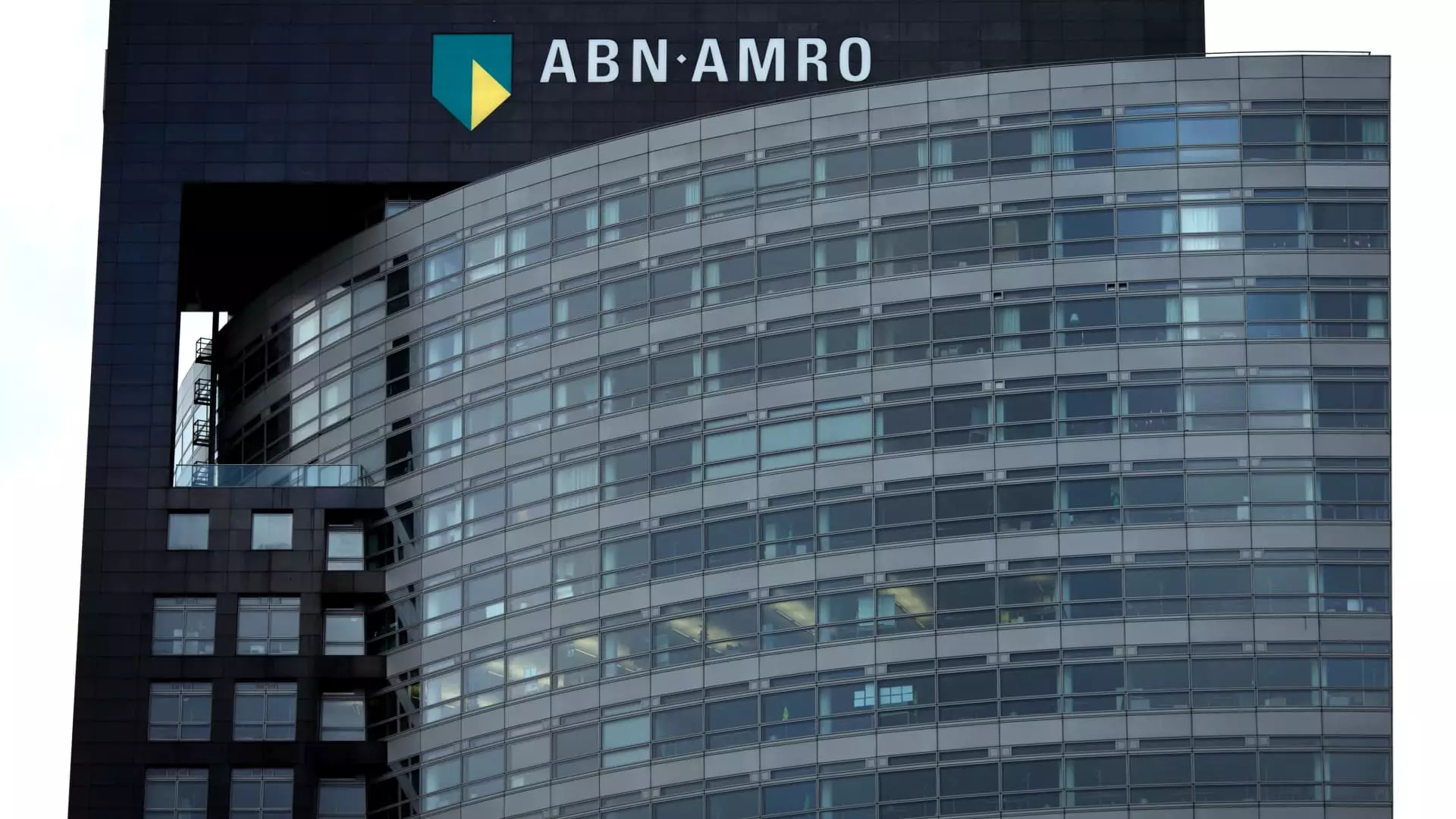In a significant move signaling a shift in its banking strategy, the Dutch government announced its intention to reduce its stake in ABN Amro from 40.5% to 30%. This decision comes after a previous share sale in September that saw the government divest approximately 1.17 billion euros worth of shares, ultimately lowering its ownership below the 50% mark. Originally bailed out in reaction to the 2008 financial crisis, ABN Amro transitioned to privatization in 2015, marking a key moment in its financial recovery. Now, as the government engages in this divestiture, it underscores a broader trust in the bank’s stability and prospects.
The announcement has led to fluctuations in ABN Amro’s stock prices, with shares trading down by 1.2% following the news. As of the latest updates, shares hovered around 15.83 euros, significantly lower than the ideal price point of 31.49 euros per share cited by Finance Minister Eelco Heinen—a figure needed to recoup government expenditures on the bank. The Minister’s assertion that achieving such a price in the short term is “not realistic” highlights the challenges the government faces in maximizing its returns as it reduces its stake. Market sentiment reflects a cautious outlook, potentially influenced by broader trends in the banking sector and wider economic conditions.
Implications for the Banking Sector
The recent developments surrounding ABN Amro parallel larger conversations within Europe about banking reforms and consolidation. The banking industry has largely been under scrutiny, especially following UniCredit’s acquisition of shares in Germany’s Commerzbank, which has raised questions about cross-border mergers and the need for a cohesive banking union in Europe. As European governments seek to reduce their holdings in banks acquired during the financial crisis, the Dutch government’s actions may set a precedent, influencing strategies employed by other nations such as the U.K. and Germany, who are also adjusting their stakes in financial institutions.
ABN Amro has recently been a subject of speculation concerning its future ownership. Last year, rumors hinted at potential interest from BNP Paribas, though the French bank firmly denied such claims. These whispers of acquisition add an intriguing layer to ABN Amro’s narrative, as its government-led ownership dwindles. Such dynamics suggest a fluctuating landscape where strategic partnerships and acquisitions could reshape the future of the Dutch lender.
The Dutch government’s continued divestiture from ABN Amro signals a pivotal moment for the bank and the broader European banking community. As more nations follow suit in reducing their rescue-era stakes, the focus shifts to market conditions and the viability of these banks in a post-crisis era. ABN Amro’s future will depend significantly on its ability to regain investor confidence, navigate its financial landscape, and possibly attract interest from other major banking players. The unfolding story presents an engaging case study on government interactions within the financial sector, public trust, and the complexities of economic recovery in a dynamic marketplace.

